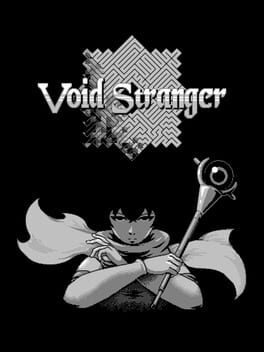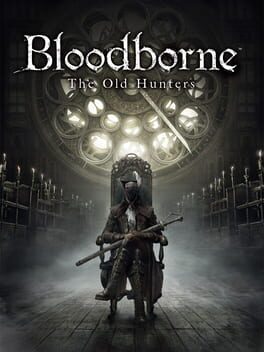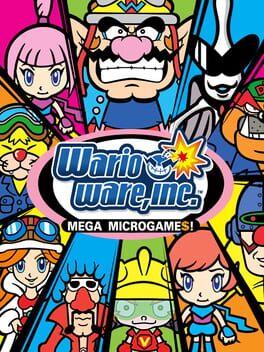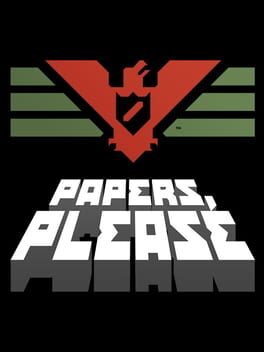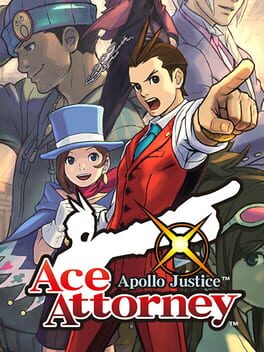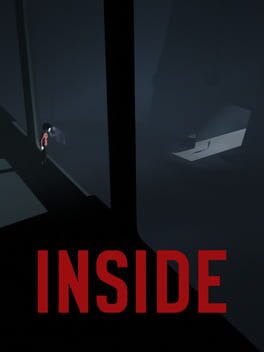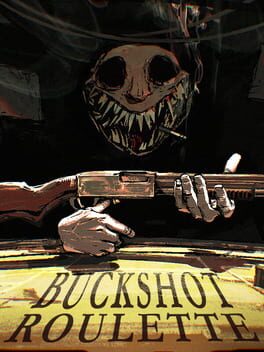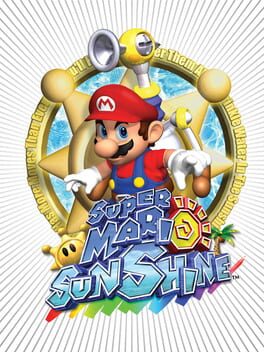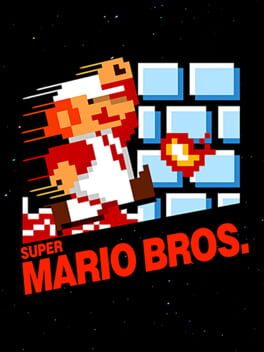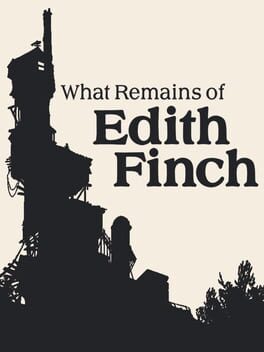antoinebeaumal
BACKER
2023
2015
I have finally finished Bloodborne, and I'm ending it with an unpleasant feeling: I completed the main game without realizing that I wouldn't be able to access the DLC content (and I can tell you that Father Gascoigne in NG+ is truly nerve-wracking; I gave up after 10 attempts). These sometimes critical mechanics that FromSoftware employs can be infuriating, although I admire their boldness in many other aspects. This, along with the blood vial farming, are two aspects that particularly frustrated me.
However, let's not kid ourselves; the game is simply incredible. The eerie Lovecraftian atmosphere is masterfully depicted. This game has taught me to play better, and I look forward to starting another Souls game to see the difference. Few games involve us as players to push ourselves to this extent.
I will cherish an unforgettable memory of it. I will replay it someday to experience the DLC in NG and not NG+...
FR: Je viens enfin de terminer Bloodborne et je le termine avec une sensation désagréable : j’ai terminé le jeu principal sans penser que je nous pourrais pas accéder au contenu du DLC (et je peux vous que Father Gascoigne en NG+ est vraiment une torture pour les nerfs, j’ai abandonné après 10 tentatives). Ces mécaniques parfois critiques qu’opèrent parfois FromSoftware m’exaspère bien que j’admire leur radicalité pour beaucoup d’autres aspects. Ceci et le farm bloodvials sont 2 aspects qui m’ont particulièrement enragé.
Toutefois, on ne vas pas se mentir, le jeu est tout simplement incroyable : l’univers glauquissime de Lovecraft y est très bien rendu. Ce jeu m’a simplement appris à mieux jouer et je me réjouis de relancer un autre souls pour voir la différence. Rare sont les jeu qui nous implique en tant que joueur à nous dépasser à ce point.
J’en garderai un souvenir immémorable. Je le relancerai un jour pour faire le DLC en NG et non en NG+…
However, let's not kid ourselves; the game is simply incredible. The eerie Lovecraftian atmosphere is masterfully depicted. This game has taught me to play better, and I look forward to starting another Souls game to see the difference. Few games involve us as players to push ourselves to this extent.
I will cherish an unforgettable memory of it. I will replay it someday to experience the DLC in NG and not NG+...
FR: Je viens enfin de terminer Bloodborne et je le termine avec une sensation désagréable : j’ai terminé le jeu principal sans penser que je nous pourrais pas accéder au contenu du DLC (et je peux vous que Father Gascoigne en NG+ est vraiment une torture pour les nerfs, j’ai abandonné après 10 tentatives). Ces mécaniques parfois critiques qu’opèrent parfois FromSoftware m’exaspère bien que j’admire leur radicalité pour beaucoup d’autres aspects. Ceci et le farm bloodvials sont 2 aspects qui m’ont particulièrement enragé.
Toutefois, on ne vas pas se mentir, le jeu est tout simplement incroyable : l’univers glauquissime de Lovecraft y est très bien rendu. Ce jeu m’a simplement appris à mieux jouer et je me réjouis de relancer un autre souls pour voir la différence. Rare sont les jeu qui nous implique en tant que joueur à nous dépasser à ce point.
J’en garderai un souvenir immémorable. Je le relancerai un jour pour faire le DLC en NG et non en NG+…
2013
Objectively, I spent more than 6 hours in panic, fearing penalties and the death of family. The sound of the fax indicating my mistakes will remain etched in my memory like a sound of terror. For 6 hours, I was lied to straight to my face, corrupted, broke up families, and allowed the law of retaliation and drug trafficking.
But for 6 hours, I also saved lives, offered a box of pencils (which costs as much as rent, that damn kid better take care of it), allowed a couple to reunite, and sparked a revolution. In short, I had a good time.
Note: I do not recommend playing this game on a smartphone or tablet – digital paperwork quickly becomes unmanageable on small screens. For a VR experience of the game, play it on an ill-suited desk and an unbalanced stool. Let a draft cool the room and drink bad chicory.
FR : Papers, please
Objectivement, j’ai passé plus de 6 heures en panique, craignant les pénalités et la mort de famille. Le son du fax indiquant mes erreurs restera ancré dans ma mémoire comme un son de terreur.
Pendant 6 heures, on m’a menti au visage, j’ai été corrompu, j’ai brisé des familles et autorisé la loi du talion et le trafic de drogue.
Mais pendant 6 heures, j’ai aussi sauvé des vies, offert une boite de crayons (qui coute le prix d’un loyer, il a intérêt à en prendre soin ce foutu gosse), permis à un couple de se retrouver et qu’une révolution se mette en place.
Bref, j’ai passé un bon moment.
Note : je ne recommande pas de jouer à ce jeu sur smartphone ou tablette : la paperasse numérique devient rapidement ingérable sur des petits formats d’écran. Pour une expérience VR du jeu, jouez plutôt sur un bureau mal adapté et un tabouret déséquilibré. Laissez un courant d’air refroidir la pièce et buvez de la mauvaise chicorée.
But for 6 hours, I also saved lives, offered a box of pencils (which costs as much as rent, that damn kid better take care of it), allowed a couple to reunite, and sparked a revolution. In short, I had a good time.
Note: I do not recommend playing this game on a smartphone or tablet – digital paperwork quickly becomes unmanageable on small screens. For a VR experience of the game, play it on an ill-suited desk and an unbalanced stool. Let a draft cool the room and drink bad chicory.
FR : Papers, please
Objectivement, j’ai passé plus de 6 heures en panique, craignant les pénalités et la mort de famille. Le son du fax indiquant mes erreurs restera ancré dans ma mémoire comme un son de terreur.
Pendant 6 heures, on m’a menti au visage, j’ai été corrompu, j’ai brisé des familles et autorisé la loi du talion et le trafic de drogue.
Mais pendant 6 heures, j’ai aussi sauvé des vies, offert une boite de crayons (qui coute le prix d’un loyer, il a intérêt à en prendre soin ce foutu gosse), permis à un couple de se retrouver et qu’une révolution se mette en place.
Bref, j’ai passé un bon moment.
Note : je ne recommande pas de jouer à ce jeu sur smartphone ou tablette : la paperasse numérique devient rapidement ingérable sur des petits formats d’écran. Pour une expérience VR du jeu, jouez plutôt sur un bureau mal adapté et un tabouret déséquilibré. Laissez un courant d’air refroidir la pièce et buvez de la mauvaise chicorée.
Will a comment on BOTW made by a stranger on blacklogged almost 8 years after its release have an impact on the world? Obviously not. Yet, I think it is interesting to question our relationship with open-world games, of which BOTW is, for many, the standard-bearer.
To provide some context: I am playing BOTW for the first time, having spent a significant part of my life playing WOW, and for the past year, I have been trying to catch up on the major successes of recent years. I am also a player of "Souls" games and have spent several hundred hours on Elden Ring.
Why such a preamble? Because my relationship with "open-world" games is not neutral and is no longer the same in 2024; I am even exhausted by it. Spending hours pressing 'w' / up arrow and observing an "infinite" world exhausts me. I no longer have the energy to invest a hundred hours in a game collecting XXX items, doing MMO-like side quests that essentially involve going to a certain place, doing X things, and getting X rewards. The pseudo-freedom of the open world offered by developers annoys me: they place too much trust in players. However, and WOW taught me this, players are experts at ruining their gaming experience; we should not trust them.
The question now is: can BOTW be approached as a linear game, like a "classic" Zelda? Well, not really. If we consider the game not as a world to explore but as a mission to accomplish (kill Ganon) using the tools the game provides, then the game reveals a lot of weaknesses.
The game can quickly become artificially difficult, especially in the fight against Kohga in Vah’Naboris. Every mistake is instant death.
All resources (food, weapons, and shields) become a hindrance to progress. You end up having to farm them. The weapon-breaking system completely discouraged me from exploring; I wanted to save my resources as much as possible.
The open-world aspect makes almost everything "skippable": it is possible to finish the game by killing practically no enemies.
Once the power of Regali is obtained, exploration as such comes to an end in my opinion. It is possible to completely skip Hyrule Castle at the end of the game. What I expected to be a "mega-shrine +++" turned out to be a courtesy visit to Ganon.
Obviously, I am exaggerating a bit, and it is undeniable that the game is simply beautiful in many aspects, especially graphically and musically.
Gasp… I think I am getting old and expecting something else from video games than being 'infinite interactive toys.' Perhaps I am expecting games to be controlled by developers and not left to players. Unfortunately, I have the impression that Tears of the Kingdom continues in this direction by adding 'Minecraft'-like crafting.
FR :
Est-ce qu’un commentaire sur BOTW fait par un inconnu sur blacklogged presque 8 ans après sa sortie va-t-il avoir un impact sur le monde ? Évidemment que non. Pourtant, je pense qu’il est intéressant d’interroger notre rapport aux jeux open-world dont BOTW est, pour beaucoup, l’étendard d’un standard.
Pour donner quelques éléments de contextes : je joue pour la première fois à BOTW, j’ai passé une majeure partie de ma vie à jouer à WOW et cela fait maintenant 1 an que je tente de rattraper mon retard sur les grands succès de ces dernières années. Je suis aussi un joueur de « Souls » et j’ai passé plusieurs centaines d’heures sur Elden Ring.
Pourquoi un tel préambule ? Parce mon rapport aux jeux « open-world » n’est pas neutre et n’est plus le même en 2024 : j’en suis même épuisé. Passer des heures à presser « w » / flèche directionnel en haut et observer un monde « infini » m’épuise. Je n’ai plus la force d’investir une centaine d’heure dans un jeu à collecter XXX items, faire des sides-quests « à la MMO » qui consistent essentiellement à aller à tel endroit faire X choses et obtenir X récompenses. La pseudo liberté de l’open world que me propose les développeurs m’exaspèrent : ils placent trop de confiance dans les joueurs. Hors, et WOW me l’a appris, les joueurs sont les experts pour ruiner leur expérience de jeu, on ne doit pas leur faire confiance.
La question maintenant est : est-ce que BOTW peut-il être abordé comme un jeu linéaire, comme un zelda « classique » ? Et bien, pas vraiment. Si on considère le jeu non pas comme un monde à explorer, mais une mission à accomplir (tuer Ganon) en utilisant les outils que le jeu nous propose, alors le jeu révèle un grand nombre de faiblesses.
1. Le jeu peut rapidement devenir artificiellement difficile, notamment sur la fight contre Kohga dans Vah’Naboris. Chaque erreur est une mort instantanée.
2. Toutes les ressources (nourriture, arme et bouclier) deviennent un frein à la progression. On se retrouve obliger d’aller les farm. Ce système d’armes qui se détruit m’a totalement découragé à aller explorer, je voulais ainsi économiser le plus possible mes ressources.
3. L’aspect open-world rend à peu près tout « skippable » : il est possible de finir le jeu en ne tuant pratiquement aucun ennemi.
4. Une fois le pouvoir de Regali obtenu, l’exploration en tant que telle prend fin à mon sens. Il est possible de totalement passer le château d’Hyrule à la fin du jeu. La où je m’attendais à un « mega-shrine +++ » s’est révélé être une visite de courtoisie à Ganon.
Évidemment, je force un peu le trait, et il est indéniable que le jeu est tout simplement magnifique sur beaucoup d’aspects, notamment graphiquement et musicalement.
Gasp… Je pense que je deviens vieux et que j’attends autre chose des jeux vidéo que d’être des « jouets interactifs infinis ». J’attends peut-être que les jeux soient contrôlés par les développeurs et non pas laissés aux joueurs.
J’ai malheureusement l’impression que Tears of the Kingdom continue dans cette voie en y ajoutant des craft « à la Minecraft ».
To provide some context: I am playing BOTW for the first time, having spent a significant part of my life playing WOW, and for the past year, I have been trying to catch up on the major successes of recent years. I am also a player of "Souls" games and have spent several hundred hours on Elden Ring.
Why such a preamble? Because my relationship with "open-world" games is not neutral and is no longer the same in 2024; I am even exhausted by it. Spending hours pressing 'w' / up arrow and observing an "infinite" world exhausts me. I no longer have the energy to invest a hundred hours in a game collecting XXX items, doing MMO-like side quests that essentially involve going to a certain place, doing X things, and getting X rewards. The pseudo-freedom of the open world offered by developers annoys me: they place too much trust in players. However, and WOW taught me this, players are experts at ruining their gaming experience; we should not trust them.
The question now is: can BOTW be approached as a linear game, like a "classic" Zelda? Well, not really. If we consider the game not as a world to explore but as a mission to accomplish (kill Ganon) using the tools the game provides, then the game reveals a lot of weaknesses.
The game can quickly become artificially difficult, especially in the fight against Kohga in Vah’Naboris. Every mistake is instant death.
All resources (food, weapons, and shields) become a hindrance to progress. You end up having to farm them. The weapon-breaking system completely discouraged me from exploring; I wanted to save my resources as much as possible.
The open-world aspect makes almost everything "skippable": it is possible to finish the game by killing practically no enemies.
Once the power of Regali is obtained, exploration as such comes to an end in my opinion. It is possible to completely skip Hyrule Castle at the end of the game. What I expected to be a "mega-shrine +++" turned out to be a courtesy visit to Ganon.
Obviously, I am exaggerating a bit, and it is undeniable that the game is simply beautiful in many aspects, especially graphically and musically.
Gasp… I think I am getting old and expecting something else from video games than being 'infinite interactive toys.' Perhaps I am expecting games to be controlled by developers and not left to players. Unfortunately, I have the impression that Tears of the Kingdom continues in this direction by adding 'Minecraft'-like crafting.
FR :
Est-ce qu’un commentaire sur BOTW fait par un inconnu sur blacklogged presque 8 ans après sa sortie va-t-il avoir un impact sur le monde ? Évidemment que non. Pourtant, je pense qu’il est intéressant d’interroger notre rapport aux jeux open-world dont BOTW est, pour beaucoup, l’étendard d’un standard.
Pour donner quelques éléments de contextes : je joue pour la première fois à BOTW, j’ai passé une majeure partie de ma vie à jouer à WOW et cela fait maintenant 1 an que je tente de rattraper mon retard sur les grands succès de ces dernières années. Je suis aussi un joueur de « Souls » et j’ai passé plusieurs centaines d’heures sur Elden Ring.
Pourquoi un tel préambule ? Parce mon rapport aux jeux « open-world » n’est pas neutre et n’est plus le même en 2024 : j’en suis même épuisé. Passer des heures à presser « w » / flèche directionnel en haut et observer un monde « infini » m’épuise. Je n’ai plus la force d’investir une centaine d’heure dans un jeu à collecter XXX items, faire des sides-quests « à la MMO » qui consistent essentiellement à aller à tel endroit faire X choses et obtenir X récompenses. La pseudo liberté de l’open world que me propose les développeurs m’exaspèrent : ils placent trop de confiance dans les joueurs. Hors, et WOW me l’a appris, les joueurs sont les experts pour ruiner leur expérience de jeu, on ne doit pas leur faire confiance.
La question maintenant est : est-ce que BOTW peut-il être abordé comme un jeu linéaire, comme un zelda « classique » ? Et bien, pas vraiment. Si on considère le jeu non pas comme un monde à explorer, mais une mission à accomplir (tuer Ganon) en utilisant les outils que le jeu nous propose, alors le jeu révèle un grand nombre de faiblesses.
1. Le jeu peut rapidement devenir artificiellement difficile, notamment sur la fight contre Kohga dans Vah’Naboris. Chaque erreur est une mort instantanée.
2. Toutes les ressources (nourriture, arme et bouclier) deviennent un frein à la progression. On se retrouve obliger d’aller les farm. Ce système d’armes qui se détruit m’a totalement découragé à aller explorer, je voulais ainsi économiser le plus possible mes ressources.
3. L’aspect open-world rend à peu près tout « skippable » : il est possible de finir le jeu en ne tuant pratiquement aucun ennemi.
4. Une fois le pouvoir de Regali obtenu, l’exploration en tant que telle prend fin à mon sens. Il est possible de totalement passer le château d’Hyrule à la fin du jeu. La où je m’attendais à un « mega-shrine +++ » s’est révélé être une visite de courtoisie à Ganon.
Évidemment, je force un peu le trait, et il est indéniable que le jeu est tout simplement magnifique sur beaucoup d’aspects, notamment graphiquement et musicalement.
Gasp… Je pense que je deviens vieux et que j’attends autre chose des jeux vidéo que d’être des « jouets interactifs infinis ». J’attends peut-être que les jeux soient contrôlés par les développeurs et non pas laissés aux joueurs.
J’ai malheureusement l’impression que Tears of the Kingdom continue dans cette voie en y ajoutant des craft « à la Minecraft ».
The first game in the series that I've played. I've never been so relieved to see the end credits. This game is both boring and addictive at the same time. I was completely blown away by episode 1 and thoroughly disappointed by the rest. I think the highly repetitive nature, especially in the music, drove me completely 'loco.' Not sure if I'll continue with the series."
FR :
Premier jeu de la série auquel je joue. Ça fait que je n’avais été aussi soulagé à voir les crédits de fin apparaitre. Ce jeu est à la fois ennuyant et addictif. J’ai été totalement soufflé par l’épisode 1 et complètement déçu par la suite. Je crois que l’aspect très répétitif notamment des musiques m’a rendu complètement « loco ». Pas sur de faire la suite.
FR :
Premier jeu de la série auquel je joue. Ça fait que je n’avais été aussi soulagé à voir les crédits de fin apparaitre. Ce jeu est à la fois ennuyant et addictif. J’ai été totalement soufflé par l’épisode 1 et complètement déçu par la suite. Je crois que l’aspect très répétitif notamment des musiques m’a rendu complètement « loco ». Pas sur de faire la suite.
2016
This review contains spoilers
We cannot deny that this game quickly establishes a unique horror atmosphere and creates genuinely cinematic scenes. The camera operates like a tracking shot, and it's the impossibility of accessing the boy's vision (looking forward or backward) that creates this sense of agoraphobia. Some scenes are visually gripping, especially the 'dead pig farm' at the beginning and the 'upside-down zombies.' The grand finale, where our solitary character, who has been the prey of the entire environment until now, becomes the predator, is a masterstroke.
No doubt a 'non-gamer reviewer' could write a review as I just did. One could then stamp it with the label 'Masterpiece, 10/10.' In this sense, it's important to note that Inside is an 'artist' game that has received grants supporting artistic production. Inside is a game that draws strength from artistic mediums such as cinema, painting, dystopian novels, and ambient music. The game aims to be an artistic masterpiece that could potentially attract a broader audience than the limited 'puzzle-platformer' audience. For gamers who are enthusiasts of this genre, Inside may be too simple, too short, and too repetitive. I personally found it less interesting than Limbo (its predecessor) in terms of gameplay.
However, I believe it's essential not to impose expectations that Inside cannot meet. Inside manages to be strange, surprising, but above all, accessible. It's the kind of game that elevates video games to the status of a medium with artistic potential. It could also be the first game for a 'non-gamer.' So, let's not dismiss it, shall we?
FR : On ne peut nier que ce jeu sait rapidement construire une ambiance horrifique unique et créer des scènes véritablement cinématographiques. La caméra fonctionne comme un traveling et c’est l’impossibilité d’accéder à la vision du garçon (voir en avant ou en arrière) qui créer ce sentiment d'agoraphobie. Certaines scènes sont picturalement prenantes, je pense notamment à « ferme aux cochons morts » du début et aux « zombies pendus à l’envers ». Le grand final où notre personnage solitaire, qui est, jusque-là, la proie de tout l’environnement devient le prédateur est un coup de maitre.
Pas de doute qu’un « non-gamer reviewer » pourrait écrire une critique comme je viens de le faire. On y collerait alors le tampon « Masterpiece, 10/10». En ce sens il est important de noter que Inside est un jeu « d’artiste » qui a touché des subventions qui soutiennent la production artistique. Inside est un jeu qui emprunte sa force à des médiums artistiques tel que le cinéma, la peinture, le roman dystopique et la musique ambient. Le jeu se veut une épure artistique qui pourrait potentiellement attirer un public plus large que le public restreint des « puzzle plate-former ». Pour ces gamers amateurs du genre, Inside est trop simple, trop court, trop répétitif. J’ai personnellement trouvé moins intéressant que Limbo (son prédécesseur) niveau gameplay.
Je pense toutefois qu’il ne faut pas plaquer des attentes qu’Inside ne peut répondre. Inside réussit à être étrange, surprenant, mais surtout accessible. Typiquement le genre de jeu qui d’élever le jeu vidéo au rang de médium à potentialité artistique. Cela pourrait aussi être le premier jeu pour un-e « non-gamer ». Alors on ne va pas cracher dessus, non ?
No doubt a 'non-gamer reviewer' could write a review as I just did. One could then stamp it with the label 'Masterpiece, 10/10.' In this sense, it's important to note that Inside is an 'artist' game that has received grants supporting artistic production. Inside is a game that draws strength from artistic mediums such as cinema, painting, dystopian novels, and ambient music. The game aims to be an artistic masterpiece that could potentially attract a broader audience than the limited 'puzzle-platformer' audience. For gamers who are enthusiasts of this genre, Inside may be too simple, too short, and too repetitive. I personally found it less interesting than Limbo (its predecessor) in terms of gameplay.
However, I believe it's essential not to impose expectations that Inside cannot meet. Inside manages to be strange, surprising, but above all, accessible. It's the kind of game that elevates video games to the status of a medium with artistic potential. It could also be the first game for a 'non-gamer.' So, let's not dismiss it, shall we?
FR : On ne peut nier que ce jeu sait rapidement construire une ambiance horrifique unique et créer des scènes véritablement cinématographiques. La caméra fonctionne comme un traveling et c’est l’impossibilité d’accéder à la vision du garçon (voir en avant ou en arrière) qui créer ce sentiment d'agoraphobie. Certaines scènes sont picturalement prenantes, je pense notamment à « ferme aux cochons morts » du début et aux « zombies pendus à l’envers ». Le grand final où notre personnage solitaire, qui est, jusque-là, la proie de tout l’environnement devient le prédateur est un coup de maitre.
Pas de doute qu’un « non-gamer reviewer » pourrait écrire une critique comme je viens de le faire. On y collerait alors le tampon « Masterpiece, 10/10». En ce sens il est important de noter que Inside est un jeu « d’artiste » qui a touché des subventions qui soutiennent la production artistique. Inside est un jeu qui emprunte sa force à des médiums artistiques tel que le cinéma, la peinture, le roman dystopique et la musique ambient. Le jeu se veut une épure artistique qui pourrait potentiellement attirer un public plus large que le public restreint des « puzzle plate-former ». Pour ces gamers amateurs du genre, Inside est trop simple, trop court, trop répétitif. J’ai personnellement trouvé moins intéressant que Limbo (son prédécesseur) niveau gameplay.
Je pense toutefois qu’il ne faut pas plaquer des attentes qu’Inside ne peut répondre. Inside réussit à être étrange, surprenant, mais surtout accessible. Typiquement le genre de jeu qui d’élever le jeu vidéo au rang de médium à potentialité artistique. Cela pourrait aussi être le premier jeu pour un-e « non-gamer ». Alors on ne va pas cracher dessus, non ?
1998
I remember playing this game in the year 2000 (I still have my copy, bought second-hand for 30 CHF) and finishing it with a certain pride (I was 13 at the time), but I found the game a bit short (I checked with the memory card from that time: 13 hours and 30 minutes of gameplay, not something to brag about either). I remember thinking of this game as 'kind of like GoldenEye64, but not as good, but cool story because the dialogues are spoken.' This perspective makes me laugh now because if there's a game that hasn't aged well, it's GoldenEye64, and if there's one that remains interesting today, it's Metal Gear Solid.
The game impresses me with its megalomaniacal desire to shine in every aspect: the cinematics, the soundtrack, the dialogues, the play with the materiality of the PlayStation (the famous 'psycho-mantis' moment), and the boss fights. Let's be clear, if MSG were a movie, it would be a fabulous B-movie close to a soap opera, given how frequent the twists and turns are. The ultra-serious and earnest tone of the dialogues sometimes border on the ridiculous, but that's the charm of this game. Obviously, it's clearly misogynistic, and 'Solid Snake' (not at all a phallic name...) is clearly in heat every time he talks to a female character.
A beautifully fraudulent aspect of the game is its subtitle: Tactical espionage action. Indeed, the espionage part of the game is very, very short. MSG1 is more of a narrative boss rush. Despite its lofty ambitions, the game consists of only a handful of areas, and 'run backs' are frequent. But, in the end, who cares? The boss fights and the dialogues are what make the game interesting.
I note that for a PS1 game, the graphics are impressive, as it tries to make the most of the available hardware. PS1 games have an unparalleled 3D style with a charm of their own that I always found superior to the N64 of that time.
The game impresses me with its megalomaniacal desire to shine in every aspect: the cinematics, the soundtrack, the dialogues, the play with the materiality of the PlayStation (the famous 'psycho-mantis' moment), and the boss fights. Let's be clear, if MSG were a movie, it would be a fabulous B-movie close to a soap opera, given how frequent the twists and turns are. The ultra-serious and earnest tone of the dialogues sometimes border on the ridiculous, but that's the charm of this game. Obviously, it's clearly misogynistic, and 'Solid Snake' (not at all a phallic name...) is clearly in heat every time he talks to a female character.
A beautifully fraudulent aspect of the game is its subtitle: Tactical espionage action. Indeed, the espionage part of the game is very, very short. MSG1 is more of a narrative boss rush. Despite its lofty ambitions, the game consists of only a handful of areas, and 'run backs' are frequent. But, in the end, who cares? The boss fights and the dialogues are what make the game interesting.
I note that for a PS1 game, the graphics are impressive, as it tries to make the most of the available hardware. PS1 games have an unparalleled 3D style with a charm of their own that I always found superior to the N64 of that time.
1996
Boy, oh boy, I've been putting off this moment for a long time. Quick background: I was born with the Super Nintendo. My entire gaming discovery revolved around 2D platformers (the Donkey Kong series in my case). I played the N64 vicariously at friends' houses because, according to my parents, 'why get a new Nintendo when you already have one at home?' (the original 'meme' before its time). Anyway, all of this to say that I don't have nostalgia for this game. Maybe a tad bit of envy for not having had an N64? Perhaps.
After 4 hours of trying Mario 64, I threw in the towel. I can't get used to the camera controls. I feel completely insecure in all my movements. To make matters worse, I'm frustrated. Maybe the emulated version through the Nintendo Switch Online subscription doesn't do justice, or isn't as good as the version offered by the recently released Super Mario 3D pack, but overall, it's outrageously expensive if you're a fan of physical games.
It's been a long time since I've had such a frustrating gaming experience.
FR : Boy, oh boy, j’ai longtemps repoussé ce moment. Rapide perspective : je suis né avec la super nintendo. Toute ma découverte s’est fait autour du plateformer 2D (la série Donkey-kong dans mon cas). J’ai joué à la N64 par procuration chez des amis car selon mes parents : « pourquoi avoir une nouvelle nintendo alors que tu as déjà une nintendo à la maison ? » (le meme avant l’heure). Bref, tout ça pour dire que je n’ai pas de nostalgie pour ce jeu. Peut-être un chouïa de jalousie de ne pas avoir eu de N64 ? Peut-être.
Après 4 heures d’essai sur Mario 64, j’ai jeté l’éponge. Je n’arrive pas à me faire au contrôle de la caméra. Je me sens totalement insécure dans tous mes mouvements. Pire que tout, je rage. Peut-être que la version émulée sur via l’abonnement Nintendo Live Switch ne rend pas justice n’est pas aussi bien que la version proposée par le pack Super Mario 3D récemment sorti mais globalement hors de prix si on aime les jeux en physique.
Ça fait longtemps que je n’ai pas une expérience de jeu aussi frustrante.
After 4 hours of trying Mario 64, I threw in the towel. I can't get used to the camera controls. I feel completely insecure in all my movements. To make matters worse, I'm frustrated. Maybe the emulated version through the Nintendo Switch Online subscription doesn't do justice, or isn't as good as the version offered by the recently released Super Mario 3D pack, but overall, it's outrageously expensive if you're a fan of physical games.
It's been a long time since I've had such a frustrating gaming experience.
FR : Boy, oh boy, j’ai longtemps repoussé ce moment. Rapide perspective : je suis né avec la super nintendo. Toute ma découverte s’est fait autour du plateformer 2D (la série Donkey-kong dans mon cas). J’ai joué à la N64 par procuration chez des amis car selon mes parents : « pourquoi avoir une nouvelle nintendo alors que tu as déjà une nintendo à la maison ? » (le meme avant l’heure). Bref, tout ça pour dire que je n’ai pas de nostalgie pour ce jeu. Peut-être un chouïa de jalousie de ne pas avoir eu de N64 ? Peut-être.
Après 4 heures d’essai sur Mario 64, j’ai jeté l’éponge. Je n’arrive pas à me faire au contrôle de la caméra. Je me sens totalement insécure dans tous mes mouvements. Pire que tout, je rage. Peut-être que la version émulée sur via l’abonnement Nintendo Live Switch ne rend pas justice n’est pas aussi bien que la version proposée par le pack Super Mario 3D récemment sorti mais globalement hors de prix si on aime les jeux en physique.
Ça fait longtemps que je n’ai pas une expérience de jeu aussi frustrante.
2023
I'm not really sure I've grasped all the nuances of the game, which, at this stage, seems too easy to me (at what point is it advantageous to shoot oneself? The magnifying glass is clearly overpowered, isn't it?). But in any case, hats off for the atmosphere of the club's backroom, which is indeed unhealthy and oppressive.
2002
I believe I have rarely been so frustrated and annoyed by a game. Initial struggles with this inverted x-axis camera that cannot be changed. Just imagine for 30 seconds what this implies: my entire internal logic is disrupted. The same grievance I felt with Mario 64: the fact that the camera is sometimes controlled by the player and sometimes by the AI makes the game exasperating, especially in a platformer that requires precision. Either have a fixed camera or give complete control to the player. This hybrid and bastardized system is truly frustrating.
Honestly, when I play Super Mario Sunshine, I question my legitimacy as a gamer. How is it that I am so bad at this game? Is it because I didn't grow up with these 3D games (I have more experience with 2D platformers, FPS, RTS, etc.)? I am unable to get past the halfway point of the game, and the "hidden stages" made me rage in a somewhat ridiculous manner. I think I'll abandon this game for a while and reflect on the meaning of life. Why do I persist to this extent? Super Mario Sunshine has put me in this strange trance. Perhaps it's due to this "Caribbean midi vibes" music. This very relaxing atmosphere is completely at odds with the difficulty of some missions. Like a feverish nap on a beach after a pina colada loaded with rum, this game makes me nauseous.
The "secret stages," in my opinion, are the most challenging but also the most interesting levels. A clear proof that the Mario experience is primarily an abstract experience of shapes and sounds, not an immersion in a pseudo-tangible world like Isle Delfino.
In short, I did not enjoy it, I am unable to finish it, and perhaps I will finish it one day (but I doubt it).
Honestly, when I play Super Mario Sunshine, I question my legitimacy as a gamer. How is it that I am so bad at this game? Is it because I didn't grow up with these 3D games (I have more experience with 2D platformers, FPS, RTS, etc.)? I am unable to get past the halfway point of the game, and the "hidden stages" made me rage in a somewhat ridiculous manner. I think I'll abandon this game for a while and reflect on the meaning of life. Why do I persist to this extent? Super Mario Sunshine has put me in this strange trance. Perhaps it's due to this "Caribbean midi vibes" music. This very relaxing atmosphere is completely at odds with the difficulty of some missions. Like a feverish nap on a beach after a pina colada loaded with rum, this game makes me nauseous.
The "secret stages," in my opinion, are the most challenging but also the most interesting levels. A clear proof that the Mario experience is primarily an abstract experience of shapes and sounds, not an immersion in a pseudo-tangible world like Isle Delfino.
In short, I did not enjoy it, I am unable to finish it, and perhaps I will finish it one day (but I doubt it).
1986
2024 nonsense: I played it on switch with nintendo live and the game lags when there are more than 6 npc on the screen...
With a view to playing all the Zelda games, I unsurprisingly decided to start with the first one. Obviously, the game bears the marks of time, but I found it an exciting step back in time. Much of the Zelda grammar is already present: the heart system, progressive weapon and skill unlocks, shrines, etc...
This game also proves that an adventure needs (almost) no dialogue or cutscenes. It's possible to have an immersive experience through exploration and gameplay alone. It's also possible to guide the player through evasive NPCs without taking them by the hand.
Another interesting element that seems to differ in subsequent Zelda games is that the game is almost a survivalist game, given the hostility of the Hyrule universe. If I'm not mistaken, apart from the first panel and the "heart-restoring fairy", all the panels are death traps. Stand still and Link dies.
The game is also brutally difficult, requiring the player to use the full panoply of items to good effect. Two elements are particularly annoying in my opinion: 1) no "invisible frame" after being hit 2) after dying, no matter how many hearts you have, you go back to 3 hearts. The penalty for the last point seems very heavy to me, and it's not unusual for me to have to leave the sanctuary to go and fill up my pv at the fairy. This sometimes creates pacing problems, but also emphasizes that every damage counts and should be avoided. I really recommend doing all the upgrades you can before going to see Ganon.
I also find that the interface borders on a form of perfect minimalism. Everything is clear, immediate and useful. Right from the start, you can sense Zelda's intentions: to bring the RPG genre to a wider audience by simplifying some of its aspects (complicated UI, lots of text and sometimes very tactical combat) while retaining the desire to explore a wide world, to discover secrets on two levels: a rich open world and enigmatic dungeons. It's also a vision of the RPG that places the player as a constantly active actor (sorry for the redundancy): there are almost no pauses, almost no dialogue, no turn-based combat. In short, a clear break with the paper role-playing game. The granddaddy of console RPGs? shit, this game's almost 40 years old...
With a view to playing all the Zelda games, I unsurprisingly decided to start with the first one. Obviously, the game bears the marks of time, but I found it an exciting step back in time. Much of the Zelda grammar is already present: the heart system, progressive weapon and skill unlocks, shrines, etc...
This game also proves that an adventure needs (almost) no dialogue or cutscenes. It's possible to have an immersive experience through exploration and gameplay alone. It's also possible to guide the player through evasive NPCs without taking them by the hand.
Another interesting element that seems to differ in subsequent Zelda games is that the game is almost a survivalist game, given the hostility of the Hyrule universe. If I'm not mistaken, apart from the first panel and the "heart-restoring fairy", all the panels are death traps. Stand still and Link dies.
The game is also brutally difficult, requiring the player to use the full panoply of items to good effect. Two elements are particularly annoying in my opinion: 1) no "invisible frame" after being hit 2) after dying, no matter how many hearts you have, you go back to 3 hearts. The penalty for the last point seems very heavy to me, and it's not unusual for me to have to leave the sanctuary to go and fill up my pv at the fairy. This sometimes creates pacing problems, but also emphasizes that every damage counts and should be avoided. I really recommend doing all the upgrades you can before going to see Ganon.
I also find that the interface borders on a form of perfect minimalism. Everything is clear, immediate and useful. Right from the start, you can sense Zelda's intentions: to bring the RPG genre to a wider audience by simplifying some of its aspects (complicated UI, lots of text and sometimes very tactical combat) while retaining the desire to explore a wide world, to discover secrets on two levels: a rich open world and enigmatic dungeons. It's also a vision of the RPG that places the player as a constantly active actor (sorry for the redundancy): there are almost no pauses, almost no dialogue, no turn-based combat. In short, a clear break with the paper role-playing game. The granddaddy of console RPGs? shit, this game's almost 40 years old...
1985
I played this game a lot as a child. I had access to it because it was on Super Mario Advance on the GBA. I found it particularly short, and I remember often challenging myself to finish it as quickly as possible. A good way to kill time on a long car journey.
I also remember that levels 4-1 and 6-1 (the one where a character on a cloud sent us spiked shells) were particularly fun and almost required us to speedrun.
Playing the game again, I found it to be a little "empty", and not really making the best use of the challenges it provides. The difficulty is poorly managed over the long term: it's either too simple or just irritating (hello hammer-throwing turtles, your patern is harder to read than Elden Ring's Malenia). The 7-4 and 8-4 puzzle-solving aspect is also annoying.
Although the graphics are very "early nes", I think Nintendo has done a particularly good job with its choice of colors: they're all warm and well-matched, and a real treat for the eyes.
In short, mythical but skipable.
I also remember that levels 4-1 and 6-1 (the one where a character on a cloud sent us spiked shells) were particularly fun and almost required us to speedrun.
Playing the game again, I found it to be a little "empty", and not really making the best use of the challenges it provides. The difficulty is poorly managed over the long term: it's either too simple or just irritating (hello hammer-throwing turtles, your patern is harder to read than Elden Ring's Malenia). The 7-4 and 8-4 puzzle-solving aspect is also annoying.
Although the graphics are very "early nes", I think Nintendo has done a particularly good job with its choice of colors: they're all warm and well-matched, and a real treat for the eyes.
In short, mythical but skipable.
Warning : spoilers
What happens to Edith Finches = 2 hours of wow moments.
What makes a linear narrative game able to remain a game and not just a narrative movie? I believe this game brings interesting propositions.
These are essentially random thoughts.
- Great creativity in the interactions between the character, the environment, and the text.
- Breaking the laws of character movement.
- A whimsical architecture made up of accumulations of rooms and secret passages.
- Playing with a form of media history: glasses-photos, the unfolding book, comics, photography, the flip-book, etc.
- The swing scene: just incredible. It creates tension in a sequence that only aims to tell a short flashback. Much more interesting than a QTE sequence in most games of this style.
- A lot of humor too: references to Halloween the movie. Walter's radio music styles changing over the years. The "Pulp comic" moment as well.
- Relatively simple story: a girl seeking to understand the mysteries of her family. When you see the family tree, you might think it's heading towards something relatively boring, like reliving all the stories of the family. Yet, it's the game's mastery to make the visit to this family album interesting.
- The "Lewis moment" is a strong moment (if not the strongest) of the game. I don't think I've played many games where each hand controls a different part of the screen. You are truly immersed in Lewis's delirious thoughts. Anyone who has done a repetitive job can empathize with this character.
- Duration: 2 hours is more than enough.
- LEWIS SUCH a GAMER WITH HIS WASD KEYBOARD and double screens.
What happens to Edith Finches = 2 hours of wow moments.
What makes a linear narrative game able to remain a game and not just a narrative movie? I believe this game brings interesting propositions.
These are essentially random thoughts.
- Great creativity in the interactions between the character, the environment, and the text.
- Breaking the laws of character movement.
- A whimsical architecture made up of accumulations of rooms and secret passages.
- Playing with a form of media history: glasses-photos, the unfolding book, comics, photography, the flip-book, etc.
- The swing scene: just incredible. It creates tension in a sequence that only aims to tell a short flashback. Much more interesting than a QTE sequence in most games of this style.
- A lot of humor too: references to Halloween the movie. Walter's radio music styles changing over the years. The "Pulp comic" moment as well.
- Relatively simple story: a girl seeking to understand the mysteries of her family. When you see the family tree, you might think it's heading towards something relatively boring, like reliving all the stories of the family. Yet, it's the game's mastery to make the visit to this family album interesting.
- The "Lewis moment" is a strong moment (if not the strongest) of the game. I don't think I've played many games where each hand controls a different part of the screen. You are truly immersed in Lewis's delirious thoughts. Anyone who has done a repetitive job can empathize with this character.
- Duration: 2 hours is more than enough.
- LEWIS SUCH a GAMER WITH HIS WASD KEYBOARD and double screens.
